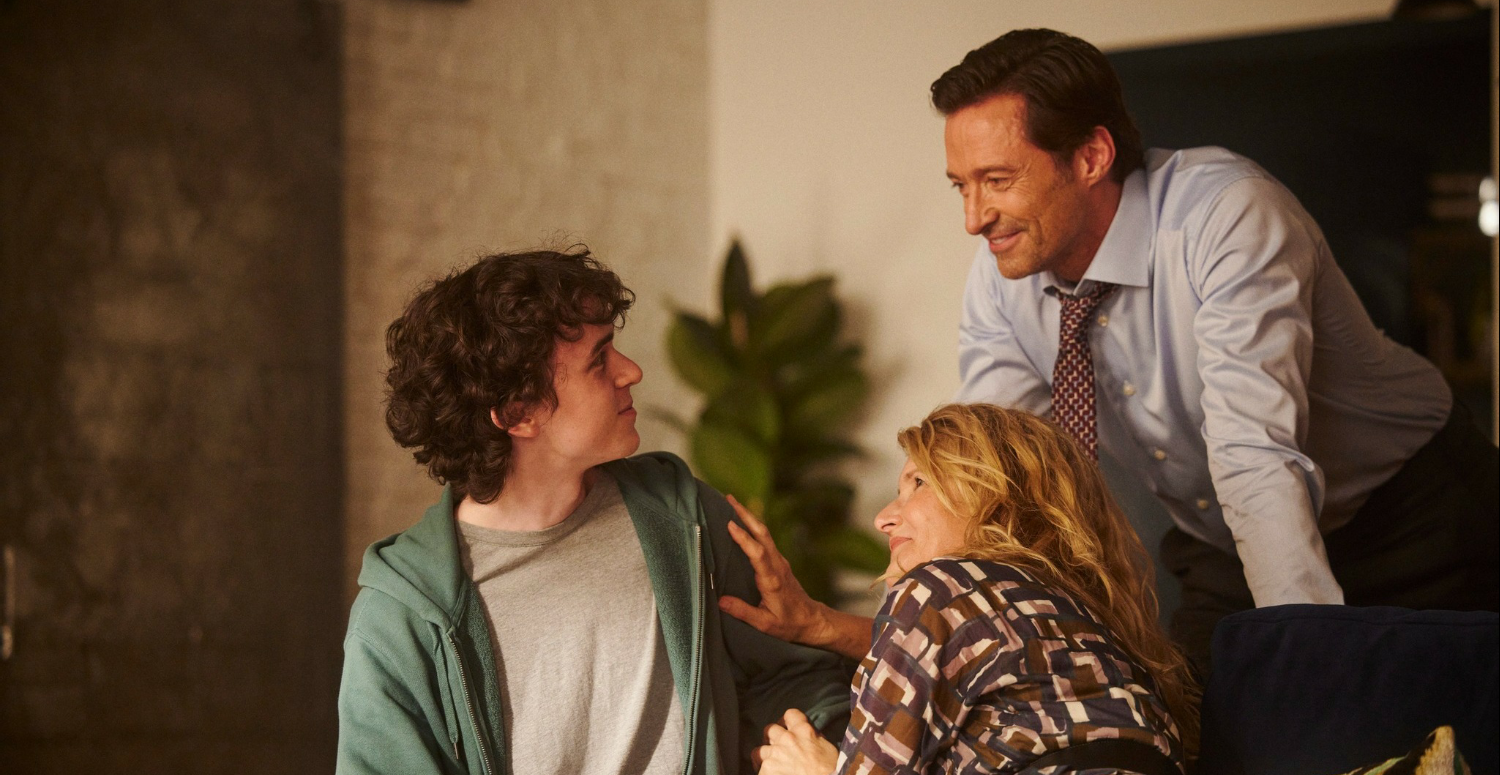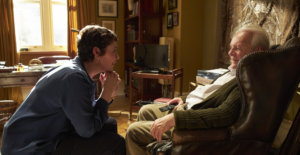The Son
2022/2023

FR EN
Toujours dans cette adaptation de sa trilogie théâtrale, Florian Zeller met cette fois-ci en scène la dernière des trois, « Le fils », qu’il a écrit en 2018, six ans après le père. Interprété au théâtre par Yvan Attal et Anne Consigny, Florian Zeller poursuit sur l’américanisation de sa pièce dans un choix de casting toujours aussi pertinent. Avec « The Son » Florian Zeller prouve à nouveau qu’il dirige ses comédiens avec brio développant une confiance de création au service de récits intimistes empreint d’une réelle violence psychologique.
Alors qu’il a refait sa vie avec une nouvelle femme avec qui il vient d’avoir un enfant, Peter ouvre la porte à son ex-femme, troublée par le comportement de leurs fils Nicholas âgé de dix-sept ans. Touché par cette nouvelle, Peter retrouve Nicholas pour essayer de comprendre ce qui ne va pas. Le fils s’installe alors chez son père et sa nouvelle famille.
Si le film suit la construction de la pièce son ainée, Hugh Jackman y insuffle une puissance de jeu remarquable qui touche à l’inénarrable et impose un personnage habité dont on ressent le passé que l’acteur à méticuleusement construit en amont. À ses côtés, Zen McGrath campe le jeune Nicholas et livre une prestation remarquable d’un rôle extrêmement difficile, sur la fatigue de l’existence. Tout en retenue, Vanessa Kirby est remarquable et partage avec Hugh Jackman de beaux moments de jeu. La question de père-fils ne s’arrête pas à ce duo, mais se prolonge à celui entre Hugh Jackman et Anthony Hopkins qui incarne son père, un homme mauvais et avide, un ambitieux profiteur sans amour. Le fils n’est pas Nicholas, mais bien Hugh Jackman, à la fois père et fils, un homme tiraillé par ses démons paternels dont il refuse absolument de reproduire les schémas.
« The Son » reprend en tout point la pièce du même nom auquel il ajoute les fragments d’un passé, celui d’un souvenir d’été en Corse, lorsque Nicholas était enfant. À travers ce souvenir qui ponctue le film en divers points stratégiquement émotionnels, Florian Zeller apporte une plus grande émotion à son œuvre. Il touche ainsi sans être dans le pathos à ces images du passé auxquels on s’accroche, à ces souvenirs émotionnels à la fois clair et imprécis.
Sacha Garcia
Still in this adaptation of his theatrical trilogy, Florian Zeller stages this time the last of the three, “The Son”, which he wrote in 2018, six years after the father. Performed on stage by Yvan Attal and Anne Consigny, Florian Zeller continues on the Americanization of his play in a choice of casting always so relevant. With « The Son » Florian Zeller proves once again that he directs his actors brilliantly, developing a creative faith in the service of intimist narratives imbued with real psychological violence.
Now that he has rebuilt his life with a new wife with whom he has just had a child, Peter lets his ex-wife in, troubled by the behavior of their seventeen-year-old son Nicholas. Touched by this news, Peter finds Nicholas to try to understand what is wrong. The son then moves in with his father and his new family.
If the film follows the structure of the play its elder, Hugh Jackman infuses it with a remarkable power of acting that touches on the inarticulate and imposes a character inhabited by the past that the actor has meticulously built up. At his side, Zen McGrath plays the young Nicholas and delivers a remarkable performance of an extremely difficult role, about the exhaustion of existence. Vanessa Kirby is remarkable in her restraint and shares with Hugh Jackman some beautiful moments of play. The question of father-son does not stop at this duo, but extends to the one between Hugh Jackman and Anthony Hopkins who plays his father, a bad and greedy man, an ambitious unloving profiteer. The son is not Nicholas, but Hugh Jackman, both father and son, a man torn by his paternal demons, which he absolutely refuses to recreate the patterns.
“The Son” replicates the play of the same name in every way, and adds fragments of a past, that of a memory of a summer in Corsica, when Nicholas was a child. Through this memory, which punctuates the film at various strategically emotional points, Florian Zeller brings a greater emotion to his work. He thus touches, without being pathos, on those images of the past that we cling to, on those emotional memories that are both clear and hazy.
Sacha Garcia

